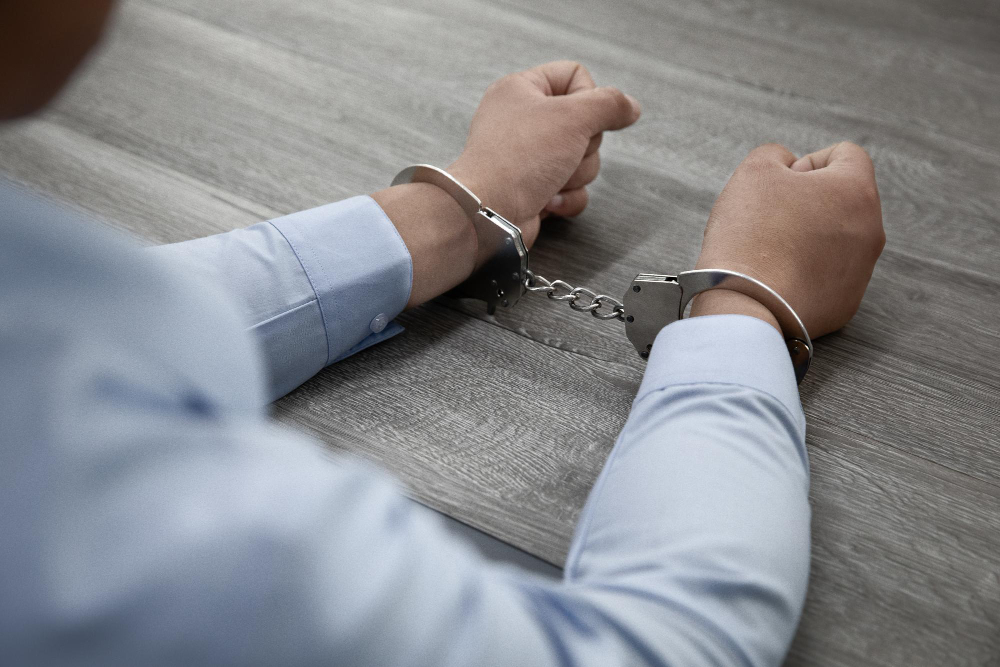


Most people have heard the term "citizen's arrest" in movies or TV shows, but few understand what it actually means or when it's legally permissible. Even less common is the concept of self-arrest, where individuals voluntarily surrender themselves to authorities. Understanding these legal concepts can be crucial, especially if you find yourself in a situation requiring legal assistance or bail services.
Both citizen's arrest and self-arrest involve complex legal procedures that can have serious consequences if handled incorrectly. Whether you're considering making a citizen's arrest, planning to turn yourself in, or simply want to understand your rights, this guide will explain everything you need to know about these important legal concepts.
A citizen's arrest occurs when a private individual detains another person who they believe has committed a crime. Unlike police officers, who have broad authority to make arrests, citizens have very limited powers and must follow strict legal guidelines.
The authority for citizen's arrests comes from common law traditions dating back centuries. However, each state has its own specific laws governing when and how citizens can make arrests. In Florida, the rules are particularly strict and require careful consideration before taking action.
Florida law allows citizen's arrests only under very specific circumstances. The person making the arrest must have witnessed a felony being committed, or they must have reasonable grounds to believe the person committed a felony. For misdemeanors, a citizen's arrest is only permitted if the offense was committed in the person's presence.
The key legal requirements include:
Making a citizen's arrest carries significant legal risks. If you detain someone without proper legal justification, you could face charges for false imprisonment, kidnapping, or assault. Even if you believe you're acting within your rights, mistakes in judgment can lead to serious criminal charges against you.
The detained person may also sue you for civil damages, including compensation for emotional distress, lost wages, and other harm caused by the wrongful detention. These lawsuits can be expensive and time-consuming, even if you ultimately prevail.
Self-arrest, also known as voluntary surrender, occurs when someone turns themselves in to law enforcement after learning they have an outstanding warrant or after committing a crime. This process is entirely voluntary and demonstrates cooperation with the legal system.
There are several reasons why someone might choose to turn themselves in voluntarily:
When someone decides to turn themselves in, they typically contact their attorney first to arrange the surrender. The attorney can coordinate with law enforcement to ensure the process goes smoothly and may be able to arrange for the person to be processed quickly.
The actual surrender usually involves going to the appropriate law enforcement agency, providing identification, and explaining that you're turning yourself in. Officers will then process you according to standard arrest procedures, which may include booking, fingerprinting, and photographing.
Whether someone is arrested through citizen's arrest, self-arrest, or traditional police action, they will likely need to post bail to secure their release while awaiting trial. Understanding the bail process is crucial for anyone facing arrest.
In Florida, bail amounts are typically set according to a predetermined schedule based on the charges involved. However, judges have discretion to increase or decrease bail amounts based on various factors, including the defendant's criminal history, flight risk, and danger to the community.
Common factors that influence bail amounts include:
Many people cannot afford to pay their full bail amount upfront. In these situations, working with a professional bail bondsman can provide the solution needed to secure release from jail while awaiting trial.
A bail bondsman posts the full bail amount in exchange for a fee, typically 10% of the total bail. This arrangement allows defendants to return home, continue working, and prepare their defense with their attorney. The bail bondsman assumes responsibility for ensuring the defendant appears for all court dates.
Professional bail bondsmen understand the local court system and can often expedite the release process. They work around the clock to help families during difficult times and provide guidance throughout the legal process.
Whether you're involved in a citizen's arrest situation or considering self-arrest, protecting your legal rights should be your top priority. Understanding these rights can prevent serious mistakes that could harm your case.
Legal representation is essential in any arrest situation. An experienced criminal defense attorney can:
Never attempt to navigate the legal system alone, especially in complex situations involving citizen's arrests or voluntary surrender.
The legal system is complex, and mistakes can have lasting consequences. Professional guidance from both attorneys and experienced bail bondsmen ensures that you understand your options and make informed decisions about your case.
Facing arrest, whether through citizen's arrest, self-arrest, or traditional police action, can be overwhelming. However, taking the right steps immediately after an arrest can significantly impact the outcome of your case.
The most important steps include securing legal representation, understanding your charges, and obtaining release through bail when possible. Working with experienced professionals who understand the Orlando legal system can make this difficult process more manageable.
Remember that an arrest is not a conviction. With proper legal representation and support, many cases can be resolved favorably. The key is taking action quickly and working with professionals who have the knowledge and experience to guide you through the process.
If you're looking for a bail bondsman in Orlando, FL, contact Mike Snapp Bailbonds today for more information. Our experienced team is available 24/7 to help you or your loved ones secure release and begin building a strong defense.